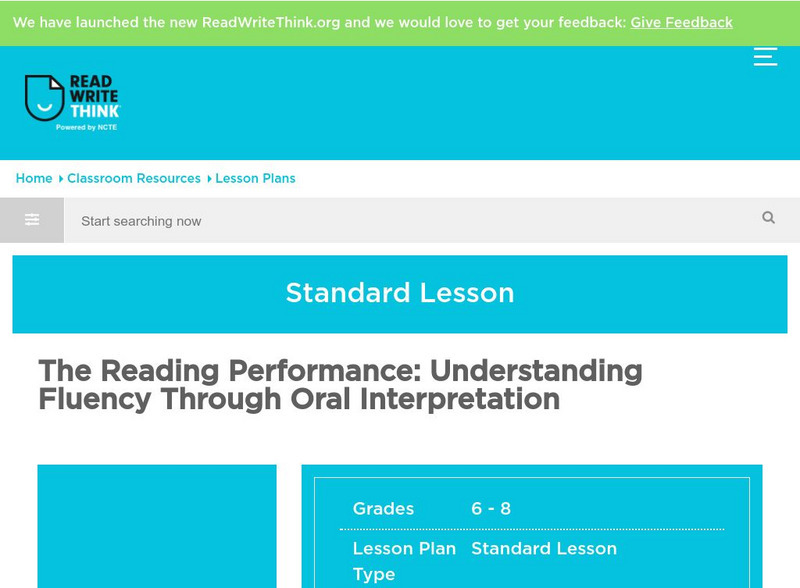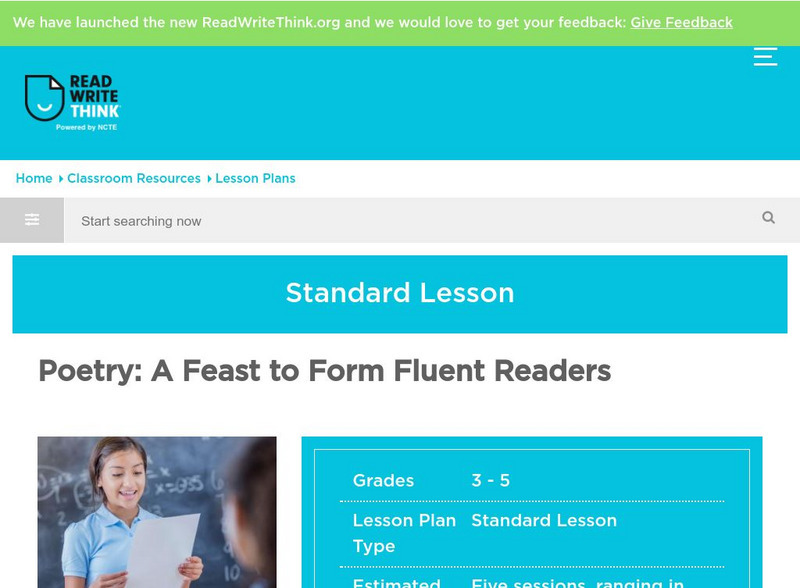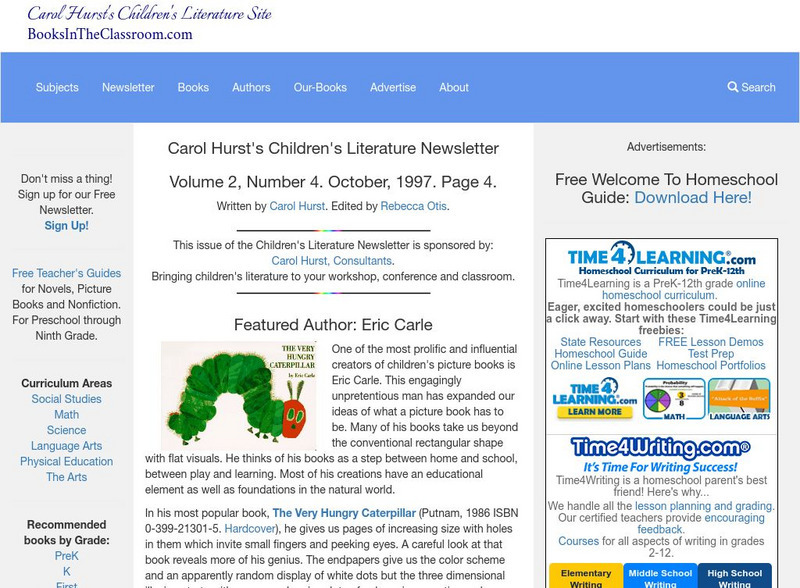Hi, what do you want to do?
Curated OER
Language Arts: Take Me to the Hall of Fame
Students write persuasive letters supporting a trip to the Baseball Hall of Fame. Once they have written the letter, they respond to it from the coach's point of view. In addition, students compose various conclusions to their letters.
ReadWriteThink
Read Write Think: Lesson Plan: Reading Fluency Through Oral Interpretation
An online lesson for middle school young scholars concerning learning reading fluency through oral interpretation. Students read poetry aloud in presentation-form and work together at interpreting the poem, increasing understanding of...
Utah Education Network
Uen: Share "The Fight" Oral Fluency Practice
This module provides a reading fluency lesson. To help second grade students improve their reading fluency, teachers will use Helen Moore's poem "The Fight" during the lesson.
Sophia Learning
Sophia: Writing, Reading, and Understanding Poetry
This tutorial focuses on different aspects of poetry: definitions, types of poetry with examples, and how to read, write, and analyze poetry. It includes three videos: a YouTube video of "El Guante" performing a free verse poem, a...
ReadWriteThink
Read Write Think: Poetry: A Feast to Form Fluent Readers
Young scholars will learn how to use theory to practice methods to help them discuss the meaning of written texts. Student objectives and instructional plans are provided. Some resources on this link may need additional software to...
Texas Education Agency
Texas Gateway: How to Read and Analyze a Poem (English Iii Reading)
This lesson focuses on strategies for reading and analyzing a poetry. Reading poetry creates some interesting challenges because a poem uses lines and stanzas rather than paragraphs in order to create emotions and experiences. Figurative...
ReadWriteThink
Read Write Think: In the Poet's Shoes: Performing Poetry and Building Meaning
Build a greater understanding of poetry and poet's voice. Develop and interpret a poem for a oral performance. Links include presentation rubrics and participation rubric.
University of Wisconsin
Wisconsin Digital Collections: Beowulf: A New Translation for Oral Delivery
This resource contains not only the full text of Beowulf, but also an audio stream of the translator, Dick Ringler, reading the poem.
ReadWriteThink
Read Write Think: Teaching the Epic Through Ghost Stories
This lesson plan uses the oral tradition of ghost stories (anchored in the Gothic) as a means of explaining the oral tradition of the epics. Included in the lesson plan is an overview, practice, objectives, resources, preparation, and more.
Other
Uil: Speech and Debate (Texas Only)
Section of the University Interscholastic League's home page dedicated to Speech and Debate information. Included is a wealth of information about participating in speech and debate tournaments and contests. Topics include general...
Alabama Learning Exchange
Alex: Plath, Personification, and Figurative Language
This project based activity will use Sylvia Plath's poem, "Mirror", to examine the use of personification and figurative language. The activity may also incorporate the use of technology to produce a multimedia project. This allows...
National Endowment for the Humanities
Neh: Edsit Ement: Recognizing Similes: Fast as a Whip
This lesson is designed to help learners review what they have learned in earlier classes and to begin to engage with similes on a deeper and more abstract level. Students will define similes and identify examples; read and analyze the...
Books in the Classroom
Carol Hurst's Children's Literature Site: Eric Carle
What do you know about Eric Carle, the author? This Carol Hurst site highlights some interesting facts about this author's life and refers to some of his books.

















